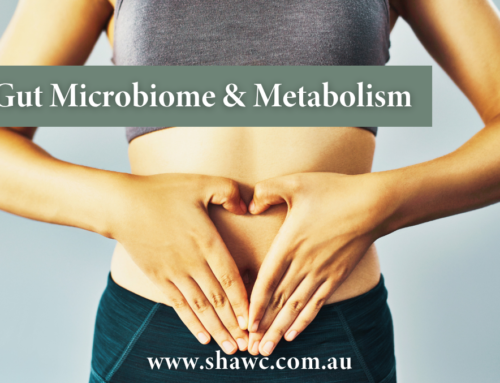Hormones and Gut Health: Why Is Gut Health Important?
Did you know that your gut bacteria (microbiome) help regulate your hormones, especially oestrogen?
Our gut microbiome is an intelligent system that senses, then influences nearly every hormonal feedback loop in our body.
A healthy gut microbiome is like a rainforest with a large variety of organisms all in the right amount and in the right places. When this is disrupted, you may experience ‘dysbiosis.’
Which can be a culprit for hormonal issues including hypothyroidism, PMS, PCOS, endometriosis, fertility challenges, and more.
Basically, if your gut isn’t healthy then your hormones are not going to be healthy.
There has been a growing interest in hormones and gut health. More specifically, our microbiome and how these trillions of bacteria are crucial to our physiology and metabolism.
There is a collection of bacteria in your gut which are capable of metabolising and modulating your body’s circulating oestrogen, which in turn can impact weight, libido and mood.
Optimising our gut health is key to keeping our hormones in balance.
Gut health is so important because the microbiome has many functions, it:
- Facilitates absorption of macro and micronutrients
- Aids the synthesis and regulation of hormones and neurotransmitters
Contributes to regulation of oestrogen levels in the body
90% of serotonin is made in the gut
Influences other hormones (including Thyroid hormones, Cortisol and Melatonin) - Has an essential role in your immune system
Your oestrogens are primarily made in the ovaries and adrenal glands.
There are three different types, all of which have vital roles in the body. In women, oestrogens help regulate body fat, are essential to female reproductive function, cardiovascular health, bone health, and brain function (including memory). In men, oestrogens aid in the maturation of sperm and maintenance of libido.
When the gut microbiome is healthy, it is producing optimal levels of an enzyme called β-glucuronidase – too much and oestrogen levels become imbalanced. β-glucuronidase also has an important role in breaking down complex carbohydrates and the absorption of bilirubin and flavonoids.
As your liver metabolises oestrogen, this conjugated oestrogen is delivered to the bile for excretion into the gut. A healthy gut minimises reabsorption of oestrogen allowing safe removal as waste in stool and urine again ensuring hormone balance.
If there is an excess of bacteria that produce β-glucuronidase, this reverts oestrogen back into its unconjugated active form and it is then absorbed back into the bloodstream resulting in oestrogen dominance.
Elevated β-glucuronidase levels are associated with conditions including:
- Pre-menstrual syndrome (PMS)
- Obesity
- Metabolic syndrome
- Oestrogen-related cancers (breast and prostate)
- Endometriosis
- Infertility
- Mood disturbance
- Heart disease
In addition, oestrogen stimulates the body to make more histamine. So, if we have too much oestrogen or displaced oestrogen this can set off an unwanted cascade of histamine intolerance symptoms, such as joint pain, headaches, insomnia, hives, asthma, throat clearing, post nasal drip, just to name a few.
Unfortunately, gut dysbiosis and gut microbiome imbalance are very common and the delicate balance of the microbiome can be affected by many different factors which include genetics, age, weight, diet, alcohol, antibiotics, environmental pollutants and more.
There are many signs of an unhealthy gut, which can often be misdiagnosed as something else.
- Digestive issues (bloating, gas, diarrhoea or constipation)
- Weight changes
- Food sensitivities
- Fatigue
- Skin irritation
- Autoimmune conditions
- Hormonal imbalance
If you think you may have a hormone imbalance or feel that your gut health could be impacting your health, please reach out and book a consultation.
Get in touch today to make an appointment with our experienced naturopath Cassandra at Sustainable Health and Wellness Clinic.




